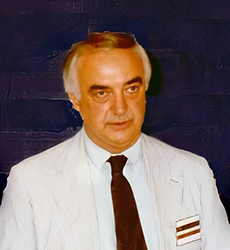History













Management
From the inception of the RCA, the representatives of the RCA Government Parties have met during the annual IAEA General Conference to discuss matters related to the implementation of the Agreement. The first of such meetings was held during the IAEA General Conference of 1973, in Vienna, Austria. Representatives of India, Indonesia, the Philippines, Singapore, Thailand, and Viet Nam and the relevant staff members of the IAEA participated. Representatives of Australia, Bangladesh, Japan, the Republic of Korea, Malaysia, and New Zealand attended as observers.
The RCA General Conference Meeting (RCA GCM) of 1978 decided to hold additional yearly meetings in one of the Member States for a more detailed discussion on project implementation and other outstanding issues. These meetings held a few months before the yearly General Conference Meetings, were called ‘RCA Working Group Meetings (RCA WGMs)’. The first of such meetings was held in Tokyo, Japan in October 1979. Representatives of 9 RCA Government Parties (Australia, Bangladesh, India, Indonesia, Japan, Republic of Korea, Malaysia, The Philippines, and Thailand), Dr. H. Kakihana, the Deputy Director General of the IAEA for Research and Isotopes, and Dr. E. Fowler, the RCA Coordinator, attended the Meeting. The Meeting reviewed the progress of the ongoing RCA projects and proposals for future projects.
The RCA was extended to another 5 years in 1977.
Government Parties
India (1972), Vietnam (1972), Singapore (1972), Indonesia (1972), Thailand (1973), the Philippines (1974), the Republic of Korea (1974), Bangladesh (1974), Malaysia (1975), Sri Lanka (1976), Australia (1977), and Japan (1978), became parties to the RCA during this period, making the RCA membership 12 Government Parties.
Projects
The initial focus of the RCA was on organizational and administrative matters associated with the implementation of the Agreement. The establishment of cooperative projects commenced in 1975. Based on the needs of Member States, the highest priority was given to the training of personnel in the medical use of radioisotopes, and in food and agriculture. The first regional project under RCA was a Coordinated Research Project on the use of ionizing radiation for the preservation of fish and fishery products.
The other Coordinated Research Projects implemented during this period were on improving legume grain production, improving domestic buffalo production, health-related environmental issues, material sciences, industrial isotope and radiation applications, maintenance of nuclear instrumentation, and hydrology, and sedimentology.
At the meeting of the representatives of the Governments Parties to the RCA held during the IAEA General Conference of 1976, held in Rio de Janeiro, Brazil, it was decided that over the next five-year period of the RCA (1977-1982), "regional co-operation must be directed more toward solving industrial problems of the countries in the region, as these will assume primary importance toward the end of the century." In 1977 the IAEA Board of Governors approved a request for a regional technical assistance project for industrial isotopes and radiation applications. The implementation of this project commenced in April 1978. This was the first regional technical assistance project funded from the IAEA's own resources.
This period also saw the initiation of activities to obtain the support of the United Nations Development Programme (UNDP) to expand the activities in industrial applications of radioisotopes and radiation implemented with IAEA support. A UNDP Preparatory Assistance Project initiated for this purpose commenced in August 1980 and was completed in March 1982.
Personnel

During this period, the RCA Secretariat was located in the former Department of Research and Isotopes of the IAEA (currently the Department of Nuclear Sciences and Applications). IAEA appointed a staff member designated as the RCA Coordinator for coordination of the RCA Programme. Dr. David Richman (1972-1975), Dr. Eugene Fowler (1975-1980), and Dr. Masatoshi Kobayashi (1980-1983) functioned as RCA Coordinators during this period. [5] Dr. Fowler was later appointed as the Project Director and the Chief Technical Adviser of the UNDP Regional Industrial Project. Dr. H. Kakihana served as the Deputy Director General and the Head of the Department of Research and Isotopes.


